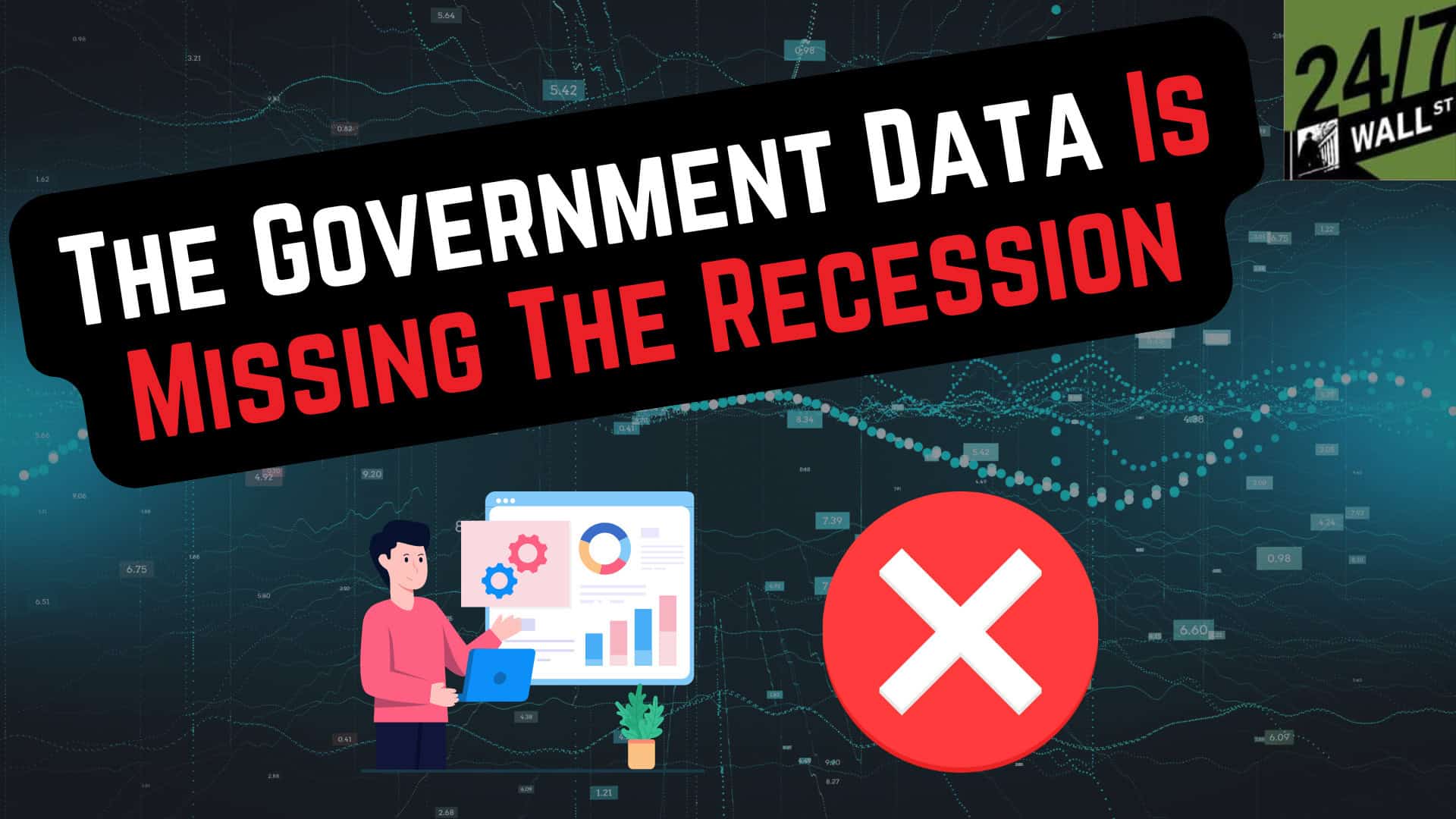
Key Points:
- Government economic reports, like unemployment and GDP, are being questioned for accuracy.
- Experts suggest real GDP growth might be closer to 0.9%, indicating a potential recession.
- Current economic metrics are seen as outdated and potentially misleading.
- One of the best ways to protect yourself in a downturn is high-quality dividend stocks. Smart money is scooping up these two dividend legends before word gets out.
Doug and Lee discuss the inaccuracies in the federal government’s economic measurements, focusing on the recent revisions to the second-quarter GDP print. They argue that the official numbers, which show a 3% GDP growth, are misleading, with experts like Stephanie Pomboy estimating the real figure to be closer to 0.9%. They critique the outdated methods used to measure GDP and suggest that the economy is likely heading into a recession. The conversation also touches on the delayed effects of interest rate hikes on the economy and the influence of political motivations on economic reporting.
Watch the Video
Edited Video Transcript:
So right now, the federal government seems to be getting everything wrong when it comes to economic numbers.
They were completely wrong about the unemployment rate.
The number of people who actually were added to the workforce, you know, was it 3.5 percent, you know, in last October or was it actually 3.8 percent?
They’re only off by 900,000.
That’s not that bad.
That’s not that bad in a country with over 300 million people.
All right.
What’s the latest thing that you think is a whiff?
I think this revised higher second quarter GDP print is just erroneous.
And, and many smart people that I have followed in some of whom I’ve known for years, like Stephanie Pomboy, who’s with Macro Mavis.
She’s a genius.
They carve through it and they’re like gross domestic product was about 3 percent.
They estimate it was more like 0.9 percent because a lot of it was inventories, accounting inventories.
A lot of it as always was government spending.
And then a lot of the bulk of it was healthcare and housing.
And so when, when she stripped it all down and people like Stephanie stripped it down, they think it’s less than 1 percent.
They think it’s 0.9 percent.
And if that’s the case, then we are headed straight into a recession.
I mean, this is sort of an inside baseball question, but the way that GDP is measured right now, you know, is old.
Yes.
Should there be a new set of metrics?
And we say, okay, we’re moving from the old metrics for GDP to these new metrics.
And it’s because the new metrics are accurate and the old metrics reflect a way of thinking that doesn’t exist anymore.
Yeah.
And it’s interesting.
It’s like when they count the retail numbers, you know, there’s an old Wall Street trade adage that’s called mark to market.
Sometimes you got to, you know, you can put stuff on your book at whatever price you paid for it.
But when you have to give a real time value to it, you have to market to the market and say it’s a bond and you paid par, you paid a thousand.
But if it’s trading at 80, you got to market to the market and that’s $800.
And that’s, that’s a lot of the way I think retail is because what is happening now for people is, is they’re buying the same stuff they were buying because they do it on a nominal basis.
They were buying stuff, you know, three years ago, they cost them a hundred bucks.
Well, now it costs them 200 bucks, but it’s the same product.
And it’s the same amount of that product.
And that’s not an increase in retail sales.
But you’re right about one thing.
Let’s say that the number was 0.9.
The economy is clearly getting slower.
It’s slowing down.
To me, the mistake on employment is a sign that it started to slow down a while ago.
We just got a head fake because the numbers were inadequate.
This number sounds to me like it’s inadequate.
It is accurate when it comes to the way it is defined, but the way it is defined is really an ancient approach to how this should be done.
Bingo.
Bingo.
And the thing that’s so weak about this is that it’s clearly politically driven.
They don’t want to go, I mean, we’re what, 70 days from the election?
Well, they don’t want to see 0.9 print versus an expected 2.8.
They don’t want to see that.
So, you know, that is always the case.
And you don’t have to be an economist to know that after raising interest rates from zero to five and a quarter, five and a half on funds, that doesn’t really start working into the economy.
And again, that was lifted over a period of a year and a half.
That doesn’t even start to work into the economy often for a year to 18 months later.
And then think of housing, which is such a huge factor in GDP numbers.
Well, rents and those are often negotiation leases and rents are on a 12-month basis.
So when those start to roll over and they’re higher, because people are getting higher rent rates, then that number is totally different.
So I think once those start to fit into the economic mix, I think we’re heading down what could be a rocky road.
Travel Cards Are Getting Too Good To Ignore (sponsored)
Credit card companies are pulling out all the stops, with the issuers are offering insane travel rewards and perks.
We’re talking huge sign-up bonuses, points on every purchase, and benefits like lounge access, travel credits, and free hotel nights. For travelers, these rewards can add up to thousands of dollars in flights, upgrades, and luxury experiences every year.
It’s like getting paid to travel — and it’s available to qualified borrowers who know where to look.
We’ve rounded up some of the best travel credit cards on the market. Click here to see the list. Don’t miss these offers — they won’t be this good forever.
Thank you for reading! Have some feedback for us?
Contact the 24/7 Wall St. editorial team.





